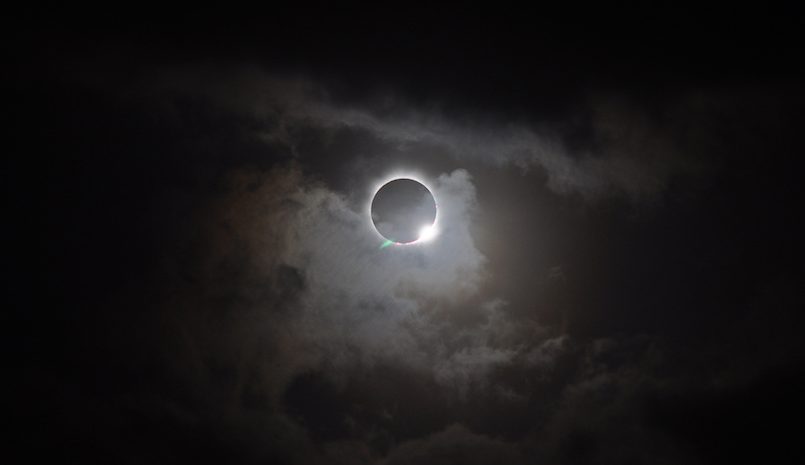AUGUSTA, Ga. – If you haven’t seen a total solar eclipse before (and chances are good you haven’t), you owe it to yourself to find the right gear and a great spot to watch this once-in-a-lifetime event on Aug. 21.
But why are these events so rare? What happens during these fascinating and beautiful total solar eclipses? Why have people historically been so terrified of them? Augusta University has experts and events to answer those very questions.
Solar Eclipse Community Symposium
- 5:30-7:30 p.m., Friday, Aug. 18
- Provides free talks on the science and history of eclipses along with safe viewing practices.
- Solar telescopes outside Augusta University’s Maxwell Theatre will allow for the viewing of the sun and sunspots.
Solar Eclipse Celebration
- 2-4 p.m., Monday, Aug. 21
- Offers an opportunity to view the eclipse as well as a livestream from the path of totality.
- A limited number of sun-safe glasses will be available.
Other media opportunities include:
Could the solar system’s biggest reactor spark a new career?
Dr. Joe Newton, Director of Nuclear Science
- The upcoming solar eclipse provides an opportunity to better understand our sun, the largest nuclear reactor in our solar system.
- This unique event has the potential to draw a new generation of students into nuclear careers.
- At the heart of Augusta University’s Nuclear Science program lies opportunity. Nuclear-focused degrees for Chemistry and Physics majors are helping to meet the demand for scientists in this growing field throughout our state and region. Read more about opportunities in Nuclear Science education.
So you want to take a selfie with the solar eclipse?
Dr. Nathan Yanasak, Assistant Professor of Medical Physics
- If you haven’t seen a total eclipse before, you should consider not taking a picture. You only have a small window to take the photo and you don’t want to miss out on the view during totality—it ends almost as soon as it begins!
- If you’re willing to practice, there’s a way to get a good shot, even as an amateur photographer. The full moon in August provides a perfect opportunity.
- A DIY setup using a clip-on lamp and 25w bulb can help you recreate the eclipse environment. Read more for guidance on capturing the perfect shot.
The exciting and sometimes frightening history of solar eclipses
Dr. Wendy Turner, Professor of History
- Many early scientists and natural philosophers knew the date and approximate time of eclipses long before computers or modern scientific instruments could aid such predictions.
- Eclipses often caught average citizens by surprise—an exciting or sometimes frightening experience. Many superstitious people have throughout history believed that eclipses were bad omens for rulers.
- In the Middle Ages, eclipses were seen as portents of God’s will. Read other examples throughout history.
4 ways to view the eclipse without damaging your eyes
Dr. Ryan Tanner, Physics lecturer
- The moon will only partially cover the sun in the minutes and hours leading up to the total eclipse.
- Even with 99% of the sun covered by the moon, the visible portion of the sun is bright enough to cause damage to an unprotected eye.
- Tools are available to ensure the sun’s light is properly filtered. Read more for guidance on sun-safe viewing using eclipse glasses, filtered binoculars, pinhole projectors or magnified projection.
What can you expect to see during the Great American Eclipse?
Dr. Thomas Crute, Chair of the Department of Chemistry and Physics
- Many of us have fond memories of March 7, 1970, when the last total solar eclipse was visible in Georgia and South Carolina.
- From an airplane, a total solar eclipse appears as the round shadow of the moon, about 70 miles in diameter, racing from the Pacific to the Atlantic at over 1,000 miles per hour.
- For those of us on the ground looking up, the best views are from the path of totality, where a range of bizarre phenomenon present themselves. Contact us to schedule an interview about the natural wonders that occur during an eclipse.
Follow the excitement on campus, eclipse news and photos from Augusta University students and events with the hashtag #AUGEclipse.
 Augusta University
Augusta University





